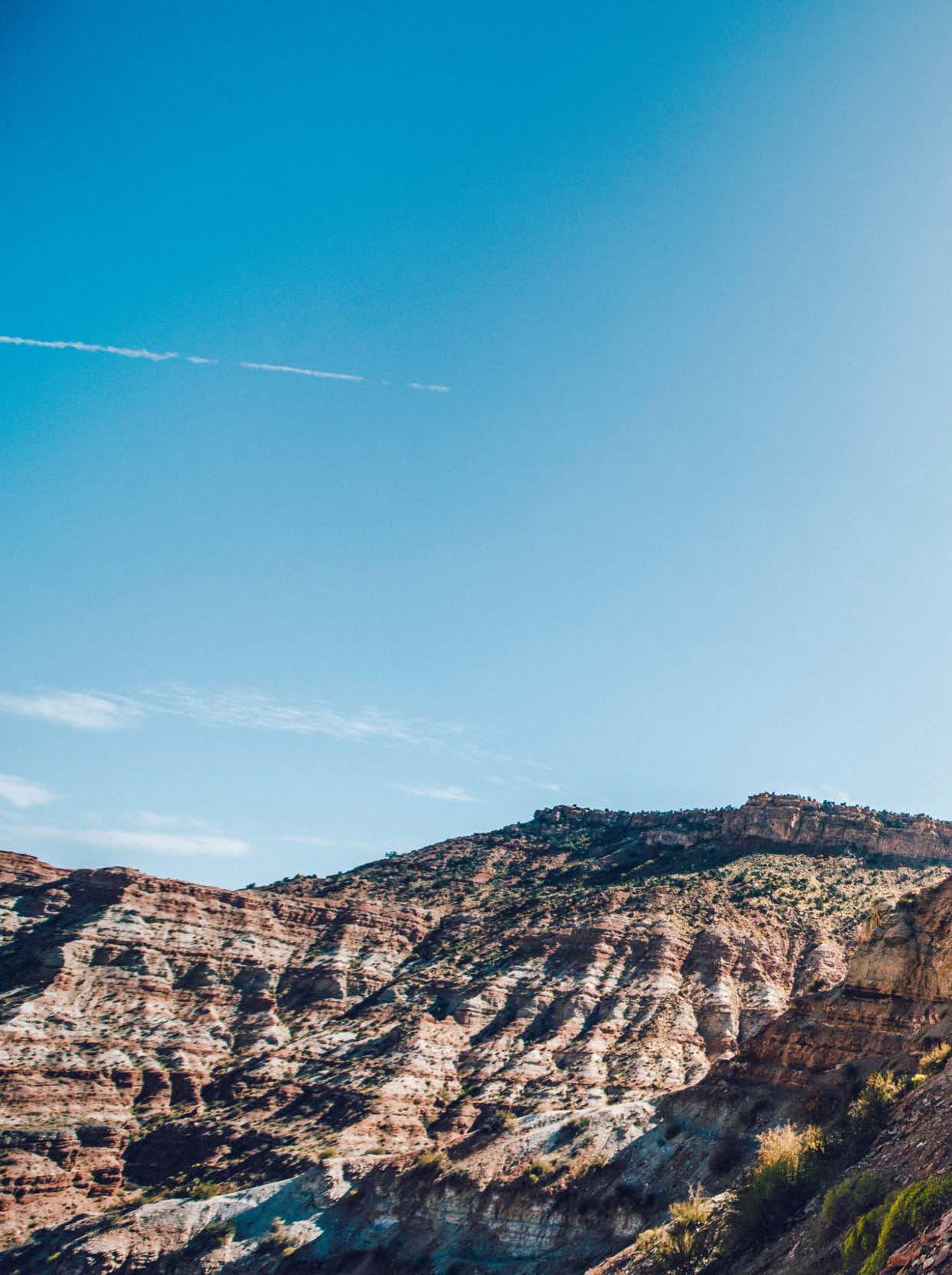
4 minute read
Jill Wheatley
Moving mountains
When the Canadian suffered a severe traumatic brain injury in 2014, what spelt an end to life as she knew it also marked the start of a new adventure
Words RACHAEL SIGEE Photography VINAYAK JAYA MALLA
Jill Wheatley doesn’t like the word ‘accident’. Instead, she describes the moment her life was altered for ever as “when serendipity changed my trail”. It was 2014, and she was teaching sports science at a school just outside Munich when, during a lesson, she was hit on the head by a baseball. Her skull fractured, her brain suffered swelling and bleeding, and damage to her optic nerves left her with just 30-per-cent vision – her right eye would never open again. In an instant, Wheatley, still in her early thirties, was transformed from an independent “adventurous spirit” to the survivor of a traumatic brain injury (TBI), which also triggered a rare eating disorder that saw her weight plummet dangerously.
It would be more than two years before Ontario-born Wheatley left hospital to find that her life – her job, home, and German residency – no longer existed. Before “serendipity” intervened, Wheatley had spent every minute outdoors, so, despite her injuries and with nothing more to lose, she set off to ice-climb, ski and mountain-run her way around the world’s most spectacular massifs, from the Eiger Ultra Trail in the Alps to Nepal’s Annapurna. She has documented her journey in a blog, Mountains of My Mind.
Last November, after months of lockdown in Kathmandu, Wheatley was about to climb the iconic Ama Dablam when she learned that her father had unexpectedly passed away. “I honestly feel like my life experience prepared me for it, and I was more accepting of relinquishing control,” she says. “There was nothing I could do. There was a strange sensation my dad was with me, that he could see. It gave me strength.”
She climbed on and made it to the summit…
the red bulletin: What was it about mountains that called to you?
jill wheatley: I’ve always been drawn to mountains and the outdoors. I felt like no matter what mountain, it couldn’t challenge me the way those 26 months in hospital did. Once, when I was really sick in Colorado, a doctor came to introduce himself. I was pulling my tubes out and doing everything a patient shouldn’t do. He said, “I understand you like mountains. These are your lifelines. If you’re on an expedition, you’re on a team. We are your team who’ll help get you to your Everest.” Two years ago, the first time I saw Everest, his words came back to me. No one climbs a mountain alone.
How much of a challenge is travel on your global expeditions?
In Canada and the US, there’s an assumption that every adult can drive. Why am I not running more in the Canadian Rockies? Because it’s really hard to access if you’re visually impaired. It’s not like in Switzerland where you can hop on a train and it takes you door to door. That was disheartening at first. However, I think the places I choose now reflect that. I learned that Chamonix, for example, is great because I can base myself somewhere, and if I’m there a month I can do 30 different trails.
Other than your loss of vision, how does your TBI affect you?
You can see the scars from my physical falls, but you don’t see the cognitive function. I have no depth perception, so I fall; I pour my water and miss the cup. Not every day, but often. Balance, coordination, concentration – all of those things needed training. Sometimes I need to remind myself that it is a lot. Still, in my mind I’m not being gracious to myself, I want no excuses. However, it doesn’t matter what pace I go. That’s not what’s important. I’m here when I wasn’t expected to survive, and look at what I’ve chosen to do.
What now helps you deal with difficult moments?
Impermanence. I was introduced to Vipassana, a type of meditation that starts with 10 days of silence. The root of it is basically that everything is constantly changing. I allowed myself to think deeper into that, shift my perspective, and recognise that actually I’m a very good example of impermanence. I don’t even like the word ‘recovery’, because to me that means going back to something, and I don’t want to go back to the person I was before. I feel like the lessons I’ve learned from my TBI are more than I ever would without it. The power of perspective is the most significant lesson; that shift from what I’ve lost to what I’ve gained. Adversity doesn’t look the same to everyone. It might not be a TBI or vision loss, but every human can connect to adversity, to vulnerability, to being open and authentic.
How does it feel to have reached a summit?
Honestly, I feel gratitude. I get goosebumps every time I talk about it. I look at a picture of me on a summit, and in the other half of my brain I’m lying in a hospital bed in Colorado hoping that I don’t wake up. I’m so thankful that these people didn’t give up on me. On top of a summit, it’s me standing there, but it’s so many other people who have got me there. mountainsofmymind.com







